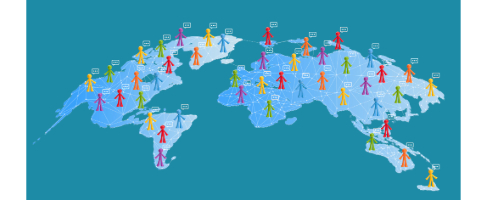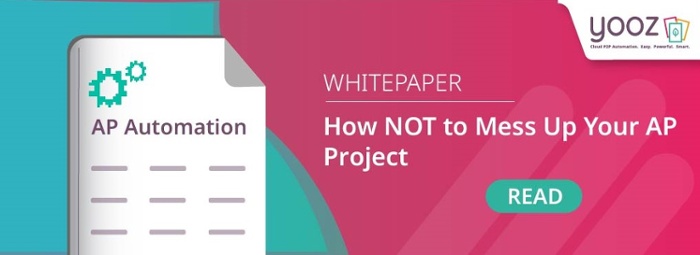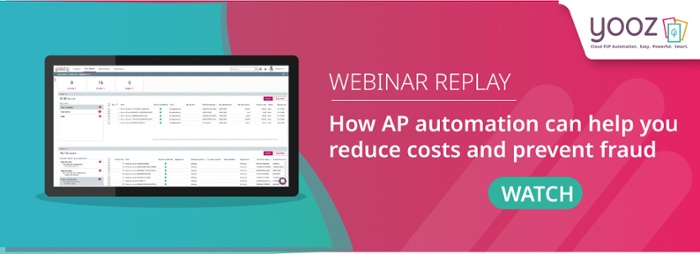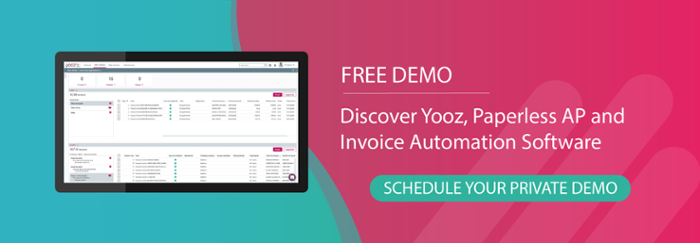
In recent years, the business world has undergone a significant shift towards remote work, a transformation accelerated by global events. This transition has not just reshaped the where and how of employee but has also underscored the need to adjust fundamental business procedures to align with this emerging norm. That means that AP departments who rely heavily on manual processes may need to consider accounts payable automation to streamline their workflows.
What is Remote Accounts Payable
Accounts payable, the function responsible for managing outgoing payments and financial obligations to suppliers or creditors, is critical for maintaining a company's reputation and financial integrity.
 Although the traditional accounting process involves a significant amount of manual paperwork and face-to-face interactions, the move to remote work has forced organizations to reevaluate their conventional approaches to accounting.
Although the traditional accounting process involves a significant amount of manual paperwork and face-to-face interactions, the move to remote work has forced organizations to reevaluate their conventional approaches to accounting.
Adapting accounts payable to a remote environment means embracing digital transformation - specifically accounts payable automation - moving from paper-based, in-person processes to digital workflows and online communication.
It involves a strategic blend of technology adoption, process re-engineering, and cultural shifts to ensure that the heart of financial operations continues to beat strongly, even when the workplace extends beyond the traditional office walls.
The good news? This digital shift not only addresses the practical challenges posed by remote work but also opens up opportunities for greater efficiency, cost reduction, and enhanced financial control.
Key Aspects of Remote Accounts Payable
Still unsure of how the accounts payable process works with remote accounts payable jobs? Let's look at the basics so you can see whether handling AP remotely could work for your business.

Definition of Accounts Payable
Accounts Payable (AP) refers to a company's financial obligations to its suppliers or creditors for goods or services received. These impact working capital, cash flow, and financial planning. AP processes include invoice processing, data entry, verification, approval, and payment execution.
Difference Between Traditional and Remote AP
Traditional AP often involves paper-based processes and physical checks for payments. Remote AP replaces these processes with digital communication, online workflows, and electronic payments that can be conducted from anywhere through a mobile connection.
Because the skill set and tools are so different, transitioning to a digital environment often requires adaption to new skills and tools for effective management.
Benefits and Challenges of Remote Accounts Payable
While a number of companies are moving to remote accounts payable specialist jobs, you should carefully consider the pros and cons to see if it is the right move for you.
Benefits:
- INCREASED EFFICIENCY: Automation reduces manual work, ensuring accurate and timely processing.
- COST REDUCTION: Digital processes lower reliance on physical documents and related costs such as postage, reducing overall costs.
- FLEXIBILITY: Remote AP allows staff to work from any location, prompting flexible hours and reduced core employee expenses.

Challenges:
- DATA SECURITY RISKS: Increased digital transactions require stringent data security measures that should be regularly reviewed and updated.
- TECHNOLOGY DEPENDENCE: A heavy reliance on technology requires robust systems and backup plans.
- ADAPTION AND TRAINING: Employees need to adapt to new technologies and workflows, which can incur additional setup costs.
Technological Solutions for Thriving in Accounts Payable Remote Situations
We've mentioned how new software can be used to pave the way for accounts payable remote jobs. Let's look at some of the main ways you can improve your accounts payable. Lots of these also work for accounts receivable, meaning that you can bring about timely and accurate payment processing to both halves of this process.
1. Overview of Software and Tools:
Businesses utilize digital invoice processing software, electronic approvals, and online payment tools to seamlessly manage accounts payable both on-site and remotely. These solutions often provide a centralized platform for tracking and managing accounts payable and all AP-related activities.
2. Features to Look for in Remote AP Software:
Prioritize automation, security, integration capabilities, scalability, and user-friendly interfaces. Specifically:
- AUTOMATION: Automated invoice processing and payment scheduling.
- SECURITY: Robust security features to protect sensitive financial data.
- INTEGRATION CAPABILITIES: Ability to integrate with existing financial systems and ERPs.
- SCALABILITY: Software should be scalable to adapt to business growth.
- USER-FRIENDLY INTERFACE: Ease of use to facilitate quick adaptation.

3. Integrating Tools with Existing Systems:
Ensure seamless and consistent data exchange by integrating AP software with existing financial systems and Enterprise Resource Planning (ERP) systems.
Best Practices for Managing Accounts Payable Remote Staff
It is crucial that you exercise caution to guarantee the timely and accurate processing of the vendor invoices. Here are some best practices to follow.
1. Effective Communication and Collaboration:
Encourage regular virtual meetings, establish clear communication channels, and utilize collaborative tools for efficient communication.
- REGULAR MEETINGS: Schedule regular virtual meetings to discuss AP issues and updates. Make sure that whoever needs to coordinate meetings has the ability to contact everyone easily.
- CLEAR COMMUNICATION CHANNELS: Establish dedicated channels for AP communication and encourage all your staff to build strong communication skills.
- COLLABORATIVE TOOLS: Utilize tools like shared documents and project management software.
2. Maintaining Accuracy and Efficiency:
Conduct regular audits, review and establish clear protocols, and monitor Key Performance Indicators (KPIs) to ensure process accuracy and efficiency.
- REGULAR AUDITS: Perform regular audits to verify the accuracy of your AP processes. Ensure that you have staff maintain accounting ledgers to facilitate these audits.
- CLEAR PROTOCOLS: Set clear protocols for invoice processing and approvals.
- PERFORMANCE TRACKING: Review and monitor KPIs to gauge efficiency.
3. Training and Supporting Remote Staff:
Provide comprehensive training on new software, offer ongoing support, and encourage feedback for continuous improvement.
- COMPREHENSIVE TRAINING: Provide thorough and ongoing training on new software and remote workflows.
- ONGOING SUPPORT: Offer ongoing support and resources for troubleshooting, emphasizing that the software is intended to complement, not replace, the efforts of employees.
- ENCOURAGE FEEDBACK: Encourage all stakeholders to provide feedback on remote AP processes to identify areas for improvement.
Following these best practices will help ensure successful management of your remote AP processes.
Security and Compliance in Remote AP
According to a study conducted by Juniper Research, online payment fraud losses are expected to exceed $343 billion between 2023-2027. This is despite widespread adoption of security protocols.
Let's look at some of the main considerations in security and compliance.
1. Importance of Data Security and Privacy:
Emphasize the confidentiality, security, integrity, and availability of financial data in a remote environment.

Not only is this crucial to maintaining trust and upholding the business's reputation, but it is also required and regulated by many countries.
One example of this is the General Data Protection Regulation (GDPR), a European law that established privacy and security of personal data in Europe, regardless of location.
2. Compliance with Financial Regulations:
Several financial regulations and standards exist and must be adhered to prevent severe legal repercussions and fines. Some examples include:
- Sarbanes-Oxley Act (SOX): US legislation enacted to enhance transparency and accountability in corporate governance, including strict financial reporting and internal control measures to protect investors and maintain the integrity of financial markets.
- General Data Protection Regulation (GDPR): European legislation that established privacy and security of personal data in Europe, irrespective of location.
3. Measures to Ensure Secure Transactions:
Every company should take five basic measures to ensure the security of transactions in their vendor invoice processing workflow. These include:
- Implement strong encryption methods for data transmission and storage.
- Use multi-factor authentication and secure access controls.
- Regularly update AP software to guard against vulnerabilities.
- Conduct regular security training and awareness programs for employees.
- Perform routine security audits and compliance checks.
The Future of Accounts Payable: Trends and Predictions
Looking to the future, technology will continue to have an increasingly huge impact on financial operations. Let's look at some of these trends, and what this means for the future.
Emerging Trends:
Invest in scalable and flexible AP technologies to stay ahead of evolving trends. This can include:
- Increased AI and machine learning use for automated invoice processing and fraud detection.
- Growing adoption of blockchain technology for secure and transparent transactions.
- Rise of mobile AP solutions to facilitate on-the-go financial management.
Predictions for the Future
Expect a focus on real-time data processing and analytics, enhanced collaboration between business units, and continued adoption of paperless, sustainable practices.
Preparing for Future Changes
To prepare for future changes, organizations should invest in scalable AP technologies, fostering adaptability within the company culture. Embracing continuous learning ensures resilience, while staying informed about emerging technologies and regulatory changes allows proactive readiness for any upcoming challenge or opportunity.

Conclusion
In conclusion, the transition to an accounts payable remote environment is a strategic move towards efficient, secure, and legally compliant financial obligations. The key points discussed - embracing technology, prioritizing security, and learning from successful models - are actions needed to thrive in this evolving landscape.
As the future further unfolds, companies that adapt to changes and proactively prepare for additional (future) trends will both thrive in managing their finances remotely and gain a competitive edge in the broader landscape of business finance management.
Discover How Yooz Can Elevate Your Accounts Payable Processes
Ready to take your accounts payable to the next level? Visit Yooz today in order to explore a world where efficiency, security, and compliance in AP management are both goals and proven realities.
FAQs
How does Yooz support remote work for accounts payable teams, particularly in ensuring seamless collaboration and access to critical financial data?
What security measures does Yooz implement to protect sensitive financial data when working remotely?
Can Yooz's remote accounts payable solution integrate with existing remote work tools and collaboration platforms?
How does Yooz ensure continuity and efficiency in accounts payable processes when transitioning to remote work?









